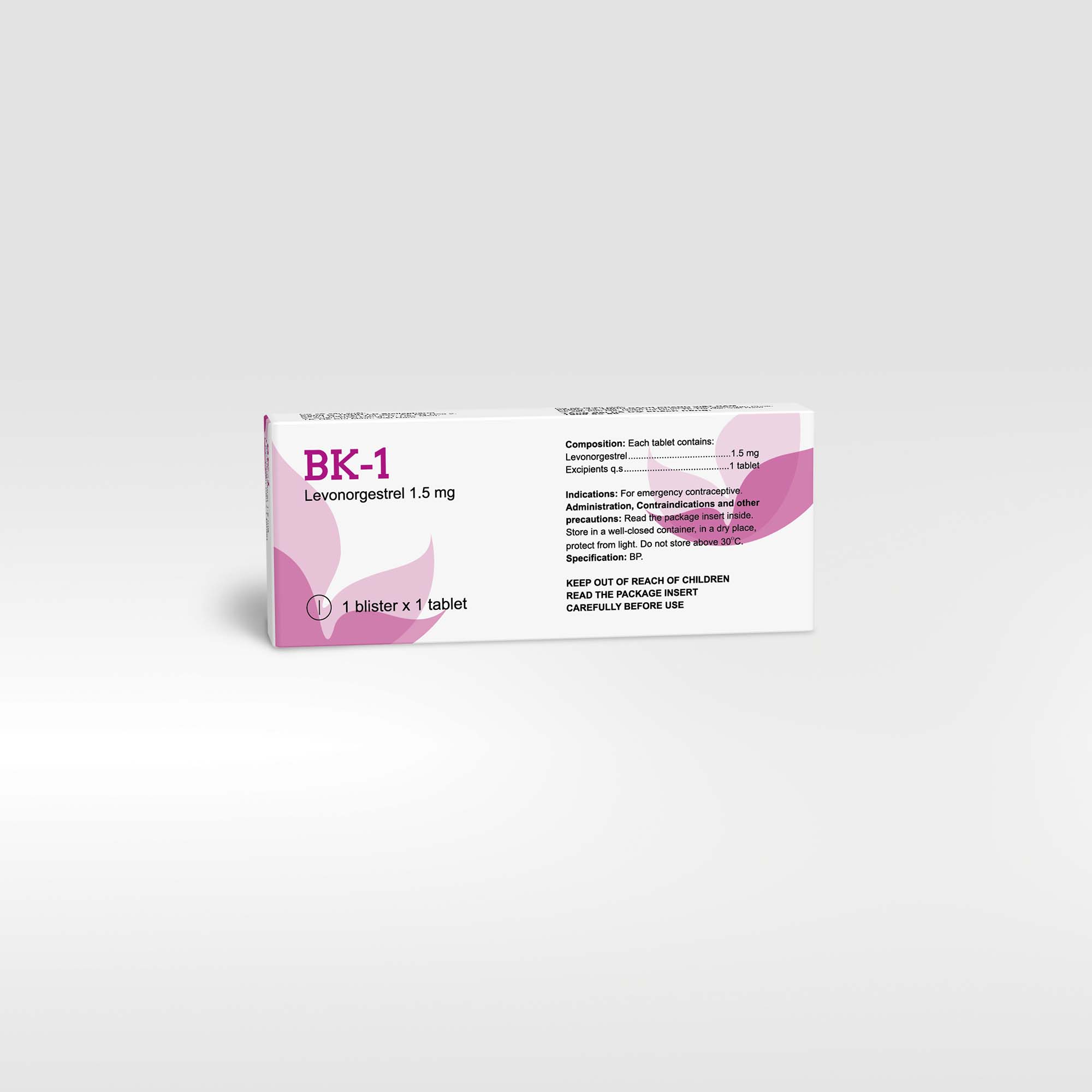BK-1 OTC
Levonorgestrel is a synthetic progestogen, derivative from nortestosterone. The frequent use of levonorgestrel is indicated for the prevention of conception. It changes the cervical mucus so that a barrier is formed against the migration of sperm into the uterine cavity.
| Pack size | Box of 1 tablet |
| Shelf-life | 24 months |
| Composition | Levonorgestrel |
| Dosage forms and strengths | Tablet 1.5 mg |
Product code :


